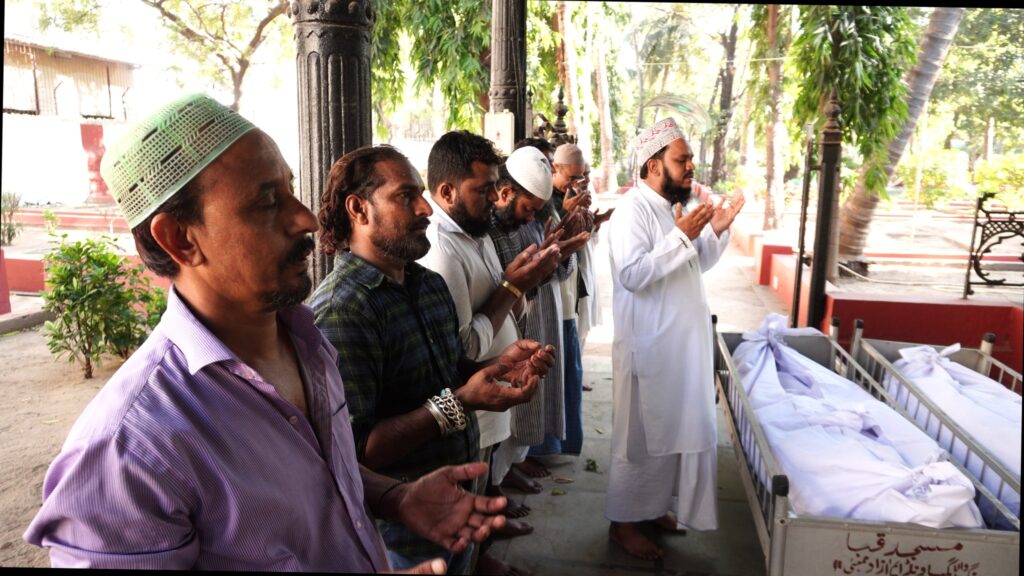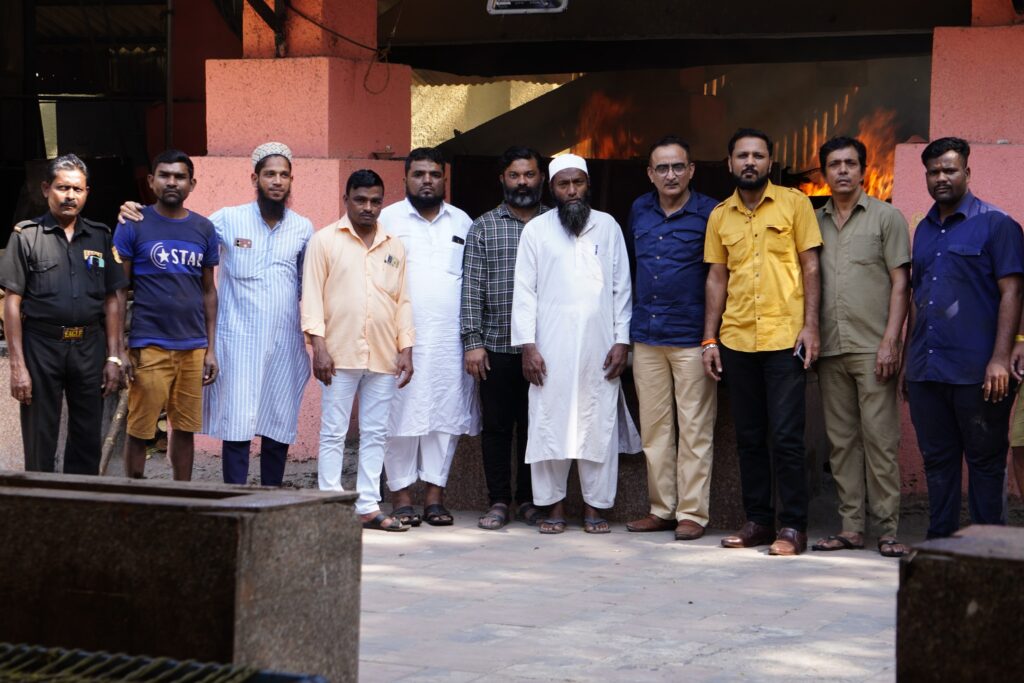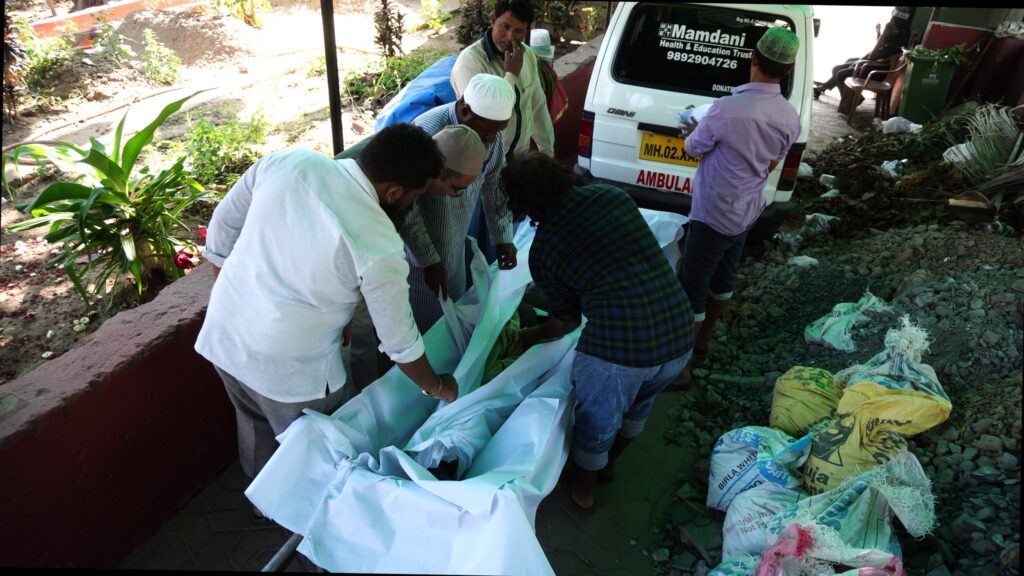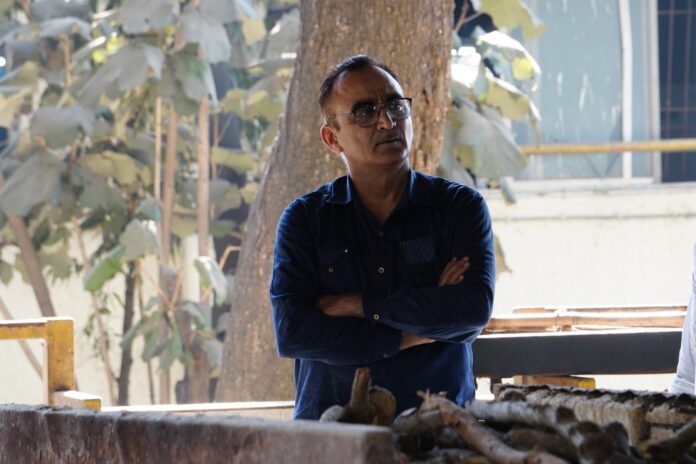In a world often driven by personal ambition, there are rare souls who dedicate their lives to serving others. One such inspiring figure is Iqbal Mamdani—former television journalist and a compassionate social worker whose actions speak louder than words. Known for his dignified handling of unclaimed bodies, Mamdani began this noble work during the harrowing days of the COVID-19 pandemic, ensuring that even the forgotten departed receive the respect they deserve. Even after the pandemic, Mamdani Health and Education Trust has been disposing of about 100 unclaimed bodies every month. To date, he has arranged the last rites for over 7,000 unclaimed souls, blending humanity with tradition.
Beyond this unparalleled social service, his accomplishments as a journalist and the recognition he has received for his selfless work highlight his extraordinary path. In this exclusive interview, we explore the inspirations, challenges, and impact of his work on society.
Q. We have heard a lot about you that you take the responsibility of cremating unclaimed bodies. How did you get the inspiration for this? Or what was the incident that inspired you to start this work?
Iqbal Mamdani: The era of COVID-19, when people were confined to their homes. Streets, neighborhoods, and crossroads were enveloped in silence, as if life had come to a standstill. During that time, countless individuals lost their parents and relatives. But it was also a period that revealed the true nature of relationships and bonds. Fear of falling ill drove people to such an extent that they distanced themselves from one another. It reached a point where I have seen, parents couldn’t recognize their children, and children couldn’t recognize their parents after death. As the bodies began to pile up outside crematoriums and hospitals. At that time, it thought, why not take the responsibility of performing the last rites for these unclaimed bodies?

Q. How it started and what type of challenges do you face in this job?
Iqbal Mamdani: The Mamdani Health and Education Trust has been working since 2009, but it came into the limelight during the COVID-19 pandemic when the disease was engulfing the entire country, especially Mumbai. At that time, the government had mandated that bodies could only be cremated. During this period, the body of a Muslim taxi driver in Malad was cremated, which drew significant criticism.
Keeping this in mind, the government changed the rules and ordered the burial of the dead bodies and allot 7 different burial ground in the city. However, there was lack of human resource. No one was ready to take responsibility Then I, with my friends took the initiative. We formed a team and start working together.
During the pandemic, the disposal of unclaimed bodies had become a challenge for the government. Dead body comes in mortuary from different hospitals such as KEM, Sir JJ, St George hospitals among others, and it had only two machine working day and night respectively. Each body took a minimum of 2 hours to be cremated. At this time, hospitals were facing a lack of resources, and the pile of dead bodies was increasing. We decided to bring in an ambulance to help manage the situation and with help of police friends, we were able to get 8 ambulances.
At first, we perform last rites only for Muslim body. But at that time, I also noticed people are dying due to lack of oxygen. So, we manage to bring oxygen cylinder from Gujrat and distributed in people. People in hospitals began to recognize us after a few days. We observed that while the Muslim dead would be removed, the non-Muslim bodies would remain. No one would come forward to claim them because their people were so afraid. So, we offered to cremate those bodies.
Q. During this time, are specific rituals followed for each community, or is there a uniform process for everyone?
Iqbal Mamdani: No, not same rule for every community. When we went to the crematorium for the first time, people got scared because we were all Muslims. Then we told them that it was a Hindu body and asked how they cremated it. They were not ready to touch it but gave some suggestions. We took help from our Hindu friends. This is how we cremated the first Hindu body.

Q. How many bodies have been cremated through the trust since Covid-19?
Iqbal Mamdani: During the Corona period, we cremated more than 2000 bodies. At that time, we had a team of 200 people who were working from Churchgate to Palghar, CST to Kalyan and Navi Mumbai, Taloja. Since then, this work has continued until now. With the help and supervision of the administration, we have cremated about 7000 dead bodies till date. We currently have a 12-person team and three ambulances that cremate between 100 and 200 bodies each month according to their rituals.
Q. What was family’s reaction to your work? Have you ever faced criticism? What kind of support do you get from your family?
Iqbal Mamdani: In the beginning, the situation was difficult for everyone, but over time, they started helping me. From the very start, all my family members believed in me and encouraged me. Once people got to understand that we are fine doing this, they are started joining me and we had team of 200 members. By God grace, we are doing this work with honesty even today.
Q. How to identify unclaimed bodies and what is the procedure for claiming them?
Iqbal Mamdani: The police constantly try to identify unclaimed bodies and make every effort to reach out to their families. They follow procedures like fingerprint analysis, which can take 10 to 15 days or sometimes even a month. After exhausting all efforts, the police entrust these bodies to us.
Sometimes the families of the deceased are so poor that they cannot travel to Mumbai. In such situations, the police contact the families, arrange food and shelter for them, and ensure their needs are met. Even in these cases, the police involve our team and hand over the body to us. We then cremate the deceased in the presence of the police and the family.

Q. Besides performing last rites, what are the primary focus areas of the Mamdani Health and Education Trust?
Iqbal Mamdani: The Mamdani Health and Education Trust not only does the work of cremating unclaimed bodies; it also provides free meals to 400 people daily in the Grant Road area. We have observed that many in the working class earn very little and often neglect their health due to family responsibilities. In such situations, we aim to support them. We want their children to get education so their future can improve. We are working to expand our efforts, as it pains us to see people leaving without food due to limited resources. Our goal is to reach more people and make a greater impact. Apart from this, we also want to work in the field of education.
Q. How do you get money to support your work? Do you receive any assistance from government or private organization?
Iqbal Mamdani: Initially, there were some challenges regarding money and resources, but we solved it with the help of police administration, BMC officials and a few other political figures.
There are some issues regarding the condition and resources of mortuaries, which we have tried to discuss with the government. Currently, we are working with the Mumbai police, but there is growing demand to expand our services beyond Mumbai. This expansion requires additional funding.
We plan to raise funds through crowdfunding and CSR. I would like to appeal to everyone to help and encourage us in this mission. I urge every responsible citizen of the country to contribute to this cause in whatever way they can. For this, you can visit our website: www.mamdanihealthandeducationtrust.com

Q. You have been a successful TV journalist as well. How has your experience in journalism contributed to your social work?
Iqbal Mamdani: It was journalism that brought me here. Journalists and police are such professions that were active even during Corona. People appreciated and helped us. Even today, wherever we need any help, all our journalist friends, wherever they are, are ready to help. Honestly, if I was not a journalist, I don’t think this work could have been done so easily.
Q. What message do you want to convey to society through your work?
Iqbal Mamdani: I would like to tell everyone in the country, especially the youth, to set aside differences of caste, religion, and other divides, and come together to support one another and contribute to the nation’s development. Our country follows the Ganga-Jamuni Tehzeeb and only by following that path can our country and society move forward.


The world continues to exist because of the righteous people in it.